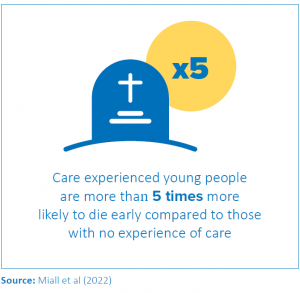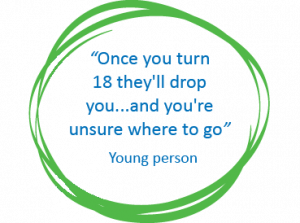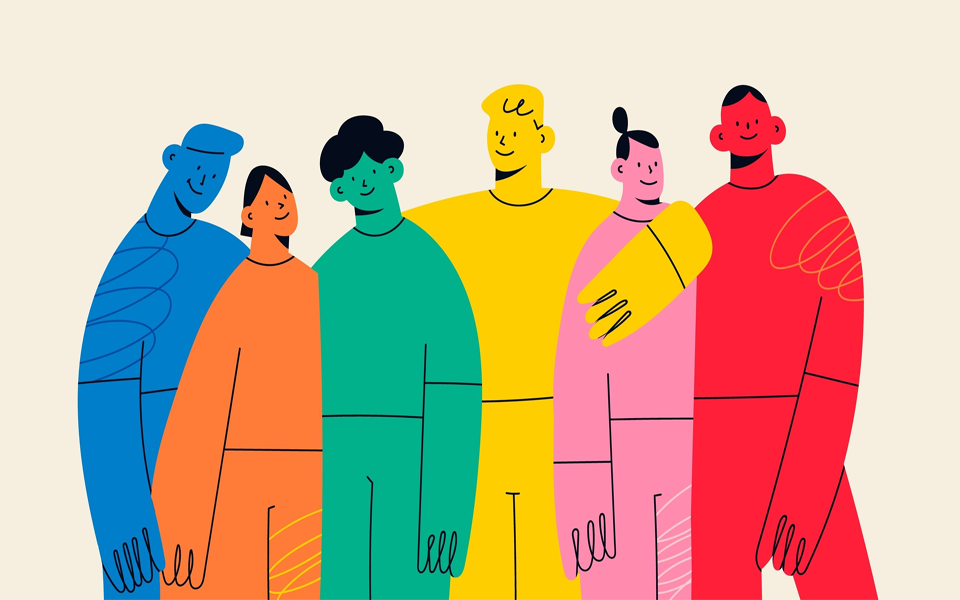As part of AYPH’s health inequalities programme we have focused on the health inequalities for different groups of young people. We are very pleased to present the findings from our exploration of health inequalities for young people who have spent time in the care of the state. In the UK this is usually referred to as ‘care leavers, or ‘care experienced’. AYPH’s research lead, Ann Hagell, highlights why this is important.
We’ve published two reports to help us understand better the issues that care experienced young people face. In the data report we have collated a range of publicly available sources in order to examine the health inequalities experienced by care experienced young people. In a separate report, we report the findings from a partnership project with Coram Voice undertaken with young people to ensure that we understand their own perspectives on this, and that their voice is clear. We are very grateful to the young people who took part for their invaluable involvement in the work.
The drivers of health inequalities for care experienced young people include poverty, ethnicity, poor housing, educational disadvantage, and interactions with the criminal justice system, amongst other factors. The pre-care experiences of abuse, neglect and/or trauma also impact on the health and wellbeing of care experienced young people. They may be exacerbated as young people transition out of the care system and into independent living arrangements.
 As a result of these factors, the information presented in our data report show that serious health inequalities exist for care experienced young people in comparison to the general population of young people. There are key disparities in mental health, mortality and physical health between care experienced young people and their peers. Many of these data are striking and shocking.
As a result of these factors, the information presented in our data report show that serious health inequalities exist for care experienced young people in comparison to the general population of young people. There are key disparities in mental health, mortality and physical health between care experienced young people and their peers. Many of these data are striking and shocking.
 Our youth panel, ranging in age from 17-25, were also clear that the general life circumstances of care experienced young people could create challenges that might predispose them to health problems. As they noted, they had to become independent younger, without the family resources usually available, and often in the face of severe financial constraints and ongoing stress. Their experiences of the stigma of living in care, the lack of support, and a gap in health literacy caused by the disruptions of their lives mean that they were both more likely to need help, and less likely to know how to seek it. They felt they were often met with a lack of understanding and empathy, and that this exacerbated barriers to accessing healthcare services.
Our youth panel, ranging in age from 17-25, were also clear that the general life circumstances of care experienced young people could create challenges that might predispose them to health problems. As they noted, they had to become independent younger, without the family resources usually available, and often in the face of severe financial constraints and ongoing stress. Their experiences of the stigma of living in care, the lack of support, and a gap in health literacy caused by the disruptions of their lives mean that they were both more likely to need help, and less likely to know how to seek it. They felt they were often met with a lack of understanding and empathy, and that this exacerbated barriers to accessing healthcare services.
Understanding more about how to effectively support this group is key to reducing their experience of health inequalities. We’ve made it clear elsewhere that improving access to health services and promoting youth friendly healthcare are key to reducing health inequalities. The young people themselves made a series of recommendations to counter the financial and social constraints. They have also shared these and other recommendations in a podcast that will be coming out shortly. At the base of the problem is a need for better understanding of what it is like to be a young person growing up in care, and more awareness of the challenges this poses. These young people are amongst our most unsupported groups, and they deserve better. “Better” will benefit them – but also all of us.
Download our data report and download our engagement report.

